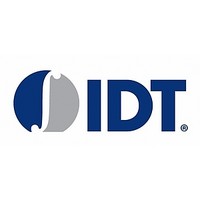ICS87946AYI-01LFT IDT, Integrated Device Technology Inc, ICS87946AYI-01LFT Datasheet - Page 6

ICS87946AYI-01LFT
Manufacturer Part Number
ICS87946AYI-01LFT
Description
IC CLOCK GENERATOR 32-LQFP
Manufacturer
IDT, Integrated Device Technology Inc
Series
HiPerClockS™r
Type
Clock Generatorr
Datasheet
1.ICS87946AYI-01LFT.pdf
(15 pages)
Specifications of ICS87946AYI-01LFT
Pll
No
Input
CML, LVPECL, SSTL
Output
LVCMOS, LVTTL
Number Of Circuits
1
Ratio - Input:output
1:10
Differential - Input:output
Yes/No
Frequency - Max
250MHz
Divider/multiplier
Yes/No
Voltage - Supply
3.135 V ~ 3.465 V
Operating Temperature
-40°C ~ 85°C
Mounting Type
Surface Mount
Package / Case
32-LQFP
Frequency-max
250MHz
Lead Free Status / RoHS Status
Lead free / RoHS Compliant
Other names
87946AYI-01LFT
Available stocks
Company
Part Number
Manufacturer
Quantity
Price
Company:
Part Number:
ICS87946AYI-01LFT
Manufacturer:
IDT, Integrated Device Technology Inc
Quantity:
10 000
Additive Phase Jitter
The spectral purity in a band at a specific offset from the
fundamental compared to the power of the fundamental is called
the dBc Phase Noise. This value is normally expressed using a
Phase noise plot and is most often the specified plot in many
applications. Phase noise is defined as the ratio of the noise power
present in a 1Hz band at a specified offset from the fundamental
frequency to the power value of the fundamental. This ratio is
expressed in decibels (dBm) or a ratio of the power in the 1Hz band
As with most timing specifications, phase noise measurements
have issues. The primary issue relates to the limitations of the
equipment. Often the noise floor of the equipment is higher than
the noise floor of the device. This is illustrated above. The device
IDT™ / ICS™ 16:1, SINGLE-ENDED MULTIPLEXER
ICS87946I-01
LOW SKEW, ÷1, ÷2 LVPECL-TO-LVCMOS/LVTTL CLOCK GENERATOR
Offset Frequency (Hz)
6
to the power in the fundamental. When the required offset is
specified, the phase noise is called a dBc value, which simply
means dBm at a specified offset from the fundamental. By
investigating jitter in the frequency domain, we get a better
understanding of its effects on the desired application over the
entire time record of the signal. It is mathematically possible to
calculate an expected bit error rate given a phase noise plot.
meets the noise floor of what is shown, but can actually be lower.
The phase noise is dependant on the input source and
measurement equipment.
12kHz to 20MHz = 0.19ps (typical)
Additive Phase Jitter @ 125MHz
ICS87946AYI-01 REV. BMAY 4, 2007
















